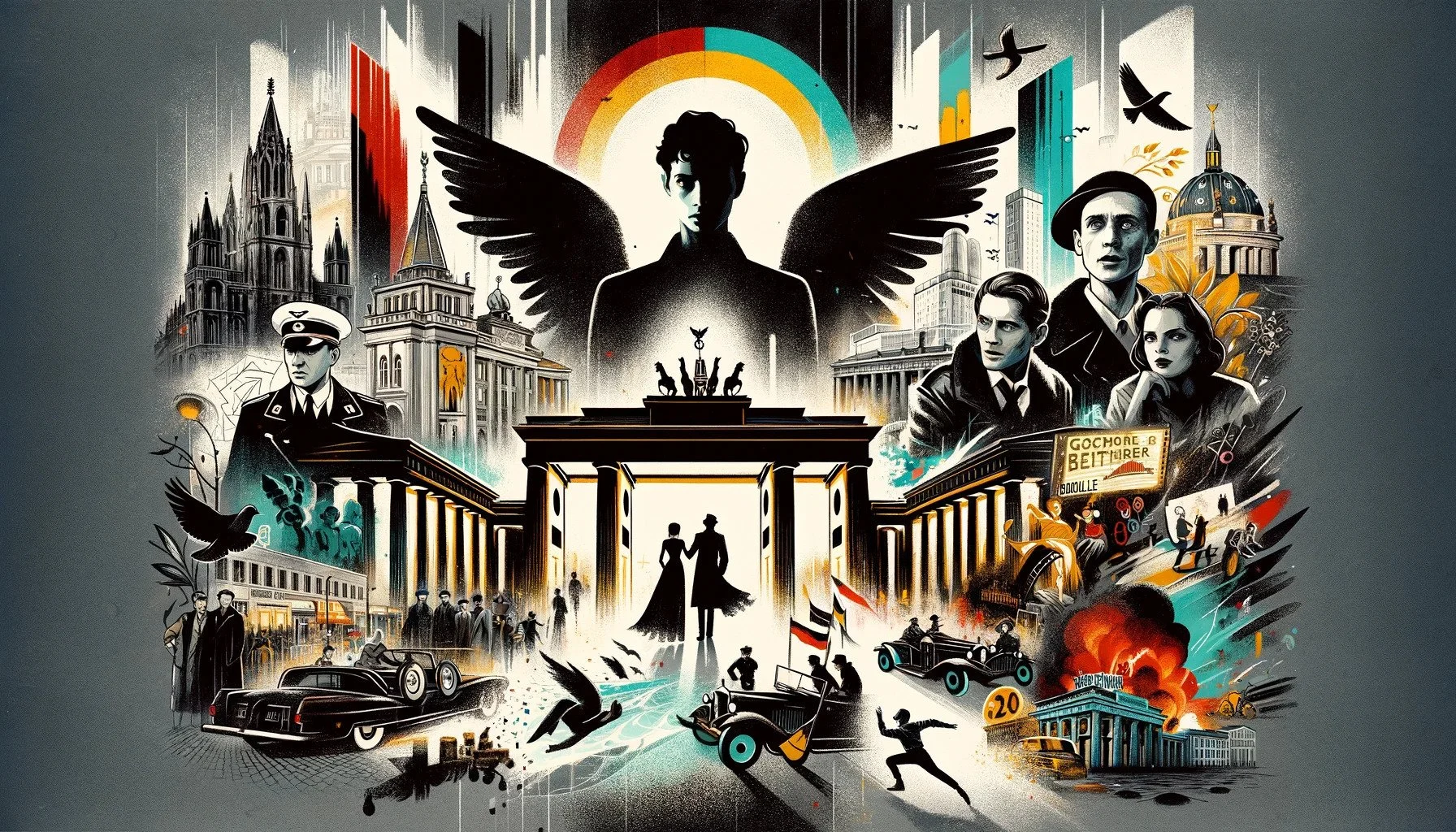Berlin, a city steeped in history, culture, and a unique blend of resilience and reinvention, has long been a captivating muse for filmmakers. The city's tumultuous past, vibrant present, and enigmatic aura have been immortalized in numerous films that explore its multifaceted character. Here, we delve into five of the most emblematic films that capture the essence of Berlin, each offering a unique lens through which to view this iconic metropolis.
1. "Berlin: Symphony of a Great City" (1927)
Director: Walter Ruttmann
"Berlin: Symphony of a Great City" is a pioneering work of the silent film era, offering a dynamic, avant-garde portrayal of Berlin in the 1920s. This documentary-style film presents a day in the life of the city, from dawn to dusk, using a montage of images that capture the rhythm and energy of urban life. Ruttmann’s innovative use of visual composition and editing creates a symphonic experience, celebrating the industrial and cultural heartbeat of Berlin. The film stands as a historical time capsule, providing a glimpse into the city’s pre-war vibrancy and its architectural and social dynamism.
2. "Wings of Desire" (1987)
Director: Wim Wenders
Wim Wenders’ "Wings of Desire" is a poetic meditation on love, loss, and the human condition, set against the backdrop of a divided Berlin. The film follows two angels, Damiel and Cassiel, who wander the city unseen, observing the lives of its inhabitants. Damiel’s longing to experience human emotions leads him to fall in love with a lonely trapeze artist. The film’s evocative black-and-white cinematography transitions to color as Damiel becomes human, symbolizing his new perspective. "Wings of Desire'' captures the melancholy and hope of Berlin during the Cold War, highlighting its unique atmosphere and the yearning for connection.
3. "Good Bye Lenin!" (2003)
Director: Wolfgang Becker
"Good Bye Lenin!" is a tragicomic exploration of life in East Berlin before and after the fall of the Berlin Wall. The story centers on Alex, a young man whose staunchly socialist mother falls into a coma just before the Wall comes down. Upon her awakening, Alex goes to great lengths to protect her from the truth about the reunification of Germany, recreating the GDR in their apartment. The film deftly balances humor and heartbreak, capturing the surreal transition from East to West and the personal impact of political upheaval. It is a poignant reflection on memory, identity, and the adaptability of the human spirit.
4. "The Lives of Others" (2006)
Director: Florian Henckel von Donnersmarck
Set in East Berlin in the 1980s, "The Lives of Others" is a gripping drama about surveillance, loyalty, and redemption. The film follows Stasi officer Gerd Wiesler, tasked with spying on playwright Georg Dreyman and his girlfriend, actress Christa-Maria Sieland. As Wiesler becomes increasingly engrossed in their lives, he begins to question the morality of his work and the regime he serves. The film’s meticulous attention to detail and powerful performances create a chilling portrayal of life under the watchful eye of a totalitarian state. "The Lives of Others" is a profound exploration of the capacity for change and the impact of art and human connection.
5. "Victoria" (2015)
Director: Sebastian Schipper
"Victoria" is a modern cinematic tour de force, shot in a single continuous take that immerses viewers in the nocturnal pulse of contemporary Berlin. The film follows Victoria, a young Spanish woman who, after a chance meeting with a group of local men, becomes embroiled in a high-stakes heist. The real-time narrative and fluid camerawork create an intense, immersive experience, capturing the spontaneity and unpredictability of urban life. "Victoria" not only showcases Berlin’s vibrant nightlife and multiculturalism but also delves into themes of trust, risk, and the fleeting nature of human connections.
A City Captured in Celluloid
Berlin’s rich and tumultuous history, coupled with its dynamic present, makes it an endlessly fascinating subject for filmmakers. These five films, each emblematic in its own right, offer diverse perspectives on the city, from its roaring twenties through its Cold War dichotomy to its contemporary vibrancy. Through these cinematic works, Berlin emerges not just as a backdrop but as a character in its own story, a testament to its enduring allure and complex identity. Whether through the lens of historical documentary, poetic fantasy, political satire, intense drama, or real-time thrill, Berlin continues to captivate and inspire, its story forever unfolding on the silver screen.


